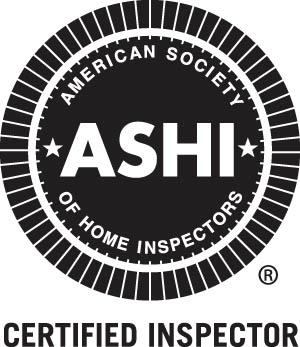It happens to me several times each year; I inspect a home for a buyer, I point out a construction defect, then I get a call from an angry seller or seller's agent, accusing me of being wrong.
If someone challenges my call, I'm always happy to provide an authoritative reference to prove that I'm not just throwing my opinion around. I can give code references to prove my calls if I'm challenged. This is why it's important for home inspectors to know building codes, even though they're not doing code inspections... but I digress.
The crazy argument that I sometimes get from home sellers and seller's agents is that a defect that I reported on is not a problem, because the defect wasn't identified as a part of the permit inspection process. The argument sounds like this:
Municipal inspectors often have very full schedules and don't have the luxury of taking their sweet time during inspections like I do. If a municipal inspector misses a violation of the code, it doesn't mean that the violation was approved.
To prove my point, I'll even give you a code reference from the Minnesota State Building Code (insert smiley winky face).
1300.0210 Inspections
Subpart 1. General. Construction or work for which a permit is required is subject to inspection by the building official and the construction or work shall remain accessible and exposed for inspection purposes until approved. Approval as a result of an inspection is not approval of a violation of the code or of other ordinances of the jurisdiction. Inspections presuming to give authority to violate or cancel the provisions of the code or of other ordinances of the jurisdiction are not valid. It shall be the duty of the permit applicant to cause the work to remain accessible and exposed for inspection purposes. Neither the building official nor the jurisdiction is liable for expense entailed in the removal or replacement of any material required to allow inspection.
Good times.
Reuben Saltzman, Structure Tech Home Inspections - Email - Twin Cities Home Inspector





If someone challenges my call, I'm always happy to provide an authoritative reference to prove that I'm not just throwing my opinion around. I can give code references to prove my calls if I'm challenged. This is why it's important for home inspectors to know building codes, even though they're not doing code inspections... but I digress.
The crazy argument that I sometimes get from home sellers and seller's agents is that a defect that I reported on is not a problem, because the defect wasn't identified as a part of the permit inspection process. The argument sounds like this:
Angry Home Seller: "That hole in my roof is fine! You had no right to tell the person buying my house that it's wrong."
Me: "That hole is not acceptable. It will leak water in to the house."
Indignant Home Seller: "That roof was just installed a month ago, and the installation meets the requirements for the Minneapolis Building Code."
Me: "What makes you say that?"
Misinformed Home Seller: "The City of Minneapolis approved the permit. That means it meets the city's code."While a hole in the roof is an extreme example, the logic applied by this home seller is just as flawed when it comes to other less extreme defects, such as improper nails in joist hangers, improper furnace venting, attic bypasses on new construction... you name it.
Municipal inspectors often have very full schedules and don't have the luxury of taking their sweet time during inspections like I do. If a municipal inspector misses a violation of the code, it doesn't mean that the violation was approved.
To prove my point, I'll even give you a code reference from the Minnesota State Building Code (insert smiley winky face).
1300.0210 Inspections
Subpart 1. General. Construction or work for which a permit is required is subject to inspection by the building official and the construction or work shall remain accessible and exposed for inspection purposes until approved. Approval as a result of an inspection is not approval of a violation of the code or of other ordinances of the jurisdiction. Inspections presuming to give authority to violate or cancel the provisions of the code or of other ordinances of the jurisdiction are not valid. It shall be the duty of the permit applicant to cause the work to remain accessible and exposed for inspection purposes. Neither the building official nor the jurisdiction is liable for expense entailed in the removal or replacement of any material required to allow inspection.
Good times.
Reuben Saltzman, Structure Tech Home Inspections - Email - Twin Cities Home Inspector
